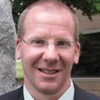


Select one of the options below:
CSU’s online bachelor’s degree in health physics empowers you to build a rewarding career in radiation safety and protection.
This program equips you with specialized knowledge and practical skills to safeguard people and the environment from harmful radiation exposure while enabling society to benefit safely from its applications.
Designed with your success in mind, this flexible and comprehensive program combines foundational sciences with industry-relevant training, preparing you for in-demand roles in health physics. Whether you’re looking to advance your career or enter a growing field, this degree provides the tools to make an impact.
This degree emphasizes hands-on experience, offering opportunities for professional internships that allow you to apply your knowledge in real-world settings. Completing internships for academic credit enhances your practical skills and helps build a foundation for a successful career in radiation safety.
Courses are taught by world-class faculty, including two Certified Health Physicists (CHPs) with extensive expertise in radiation protection. Faculty members are active researchers and respected professionals in the health physics field, with strong connections to the Health Physics Society and other industry leaders. These connections offer valuable networking opportunities and support for internships, helping you build a solid professional network.
Our asynchronous online format allows you to complete coursework at your own pace, making this program a great fit for working professionals. This flexibility ensures you can advance your education without disrupting your professional and personal commitments. Our program had a strong history of collaboration with active-duty students, especially Nuclear Navy personnel.
Health physics professionals play an essential role in ensuring radiation safety across various industries. Graduates of the Health Physics B.S. program, including those leveraging Navy Nuclear Program credit, are well-prepared to enter this expanding field. Their skills are highly valued and critical to public safety and environmental protection.
With a degree in Health Physics, including through our online degree programs tailored for Navy Nuclear personnel, you’ll be equipped for a range of rewarding career paths, such as:
These careers offer strong job security and competitive starting salaries, with industry-experienced graduates often earning around $100,000 annually.
CSU’s Health Physics program offers an online pathway to graduate studies through the 4+1 option, allowing students to begin graduate-level coursework during their bachelor’s program, which requires on-campus classes for the graduate portion. This setup enables students to complete their master’s in health physics in as little as nine months after finishing their bachelor’s, positioning them for advanced roles and leadership positions in the field while ensuring comprehensive, hands-on learning at the graduate level.
Electives (4 cr.)
Total Credits: 29
Electives (7 cr.)
Total Credits: 26
Program electives - Select a minimum of 15 credits from the following:
Total Credits: 34
Electives (14-17 cr.)
Total Credits: 31
Program Total Credits: 120

Dr. Brandl's research interests include: Radiation physics, Operational health physics, Computer simulation of radiation fields, Shielding, Detector efficiencies, Radionuclide transport, Environmental and workplace monitoring, and Internal dosimetry.

Dr. Johnson’s research lab is focused on movement of radionuclides in the environment and laser safety. He has worked with ionizing and non-ionizing radiation for over 20 years. Dr. Johnson worked as an ELT on the USS Cavalla (SSN-684), in consulting, at coal and at nuclear power plants.

Dr. Leary is our Medical Physicist working in the Radiation Oncology department at the Veterinary Teaching Hospital. His research interests are mainly in developing radiosensitizers to help improve the dose discrimination between tumor and normal tissue. He also enjoys research topics in novel therapeutic beam design and image guided radiation therapy.

Dr. Sudowe has extensive experience in the area of nuclear and radiochemistry, in particular in the development of radioanalytical separations for actinide and transactinide elements as well as fission products. His research focuses on the development and optimization of radioanalytical methods for environmental monitoring, nuclear forensics and safeguards as well as emergency response. In addition he studies the chemical and nuclear properties of transactinide elements and is involved in target preparation and cross section measurements for stockpile stewardship science. Sudowe is a member of the American Chemical Society, the American Nuclear Society and the Health Physics Society.
| Fall semester | June 1 |
| Spring semester | November 1 |
| Summer semester | May 1 |
Start your application online and upload materials directly into the online system. You can save your progress and return any time.
Apply NowPlanning to transfer credits from another college or university? Please review our FAQ page, then complete a Tentative Transfer Evaluation Form to see how your prior credits may transfer.
Refer to admissions.colostate.edu/apply/ for details about who we look for in our individual review process
Call or email our student success team to find out if the program is a good fit for your goals. Our coaches are available Monday-Friday to help you find the right program and navigate the application process.
Student Success Coach: Terrance Dickens
Phone: (970) 698-7337
Email: terrance.dickens@colostate.edu
Complete Colorado State University's online undergraduate application and pay any associated nonrefundable application processing fee (payable online) or waiver (if eligible).
Online applications must be submitted before 5 p.m. (Mountain Time) on the deadline date. If you miss the application deadline, you may still register for courses to begin your program of study as a non-degree student. Students seeking Federal financial aid must be admitted prior to enrolling.
Complete the Free Application for Federal Student Aid. Use FAFSA code 001350. Additional financial aid information is also available.
View your application status at any time to ensure your application checklist is complete or to check on updates.
Admissions decisions are made on a rolling basis and may take up to six weeks during high volume application periods.
Questions? Call (970) 698-7337 or email terrance.dickens@colostate.edu.